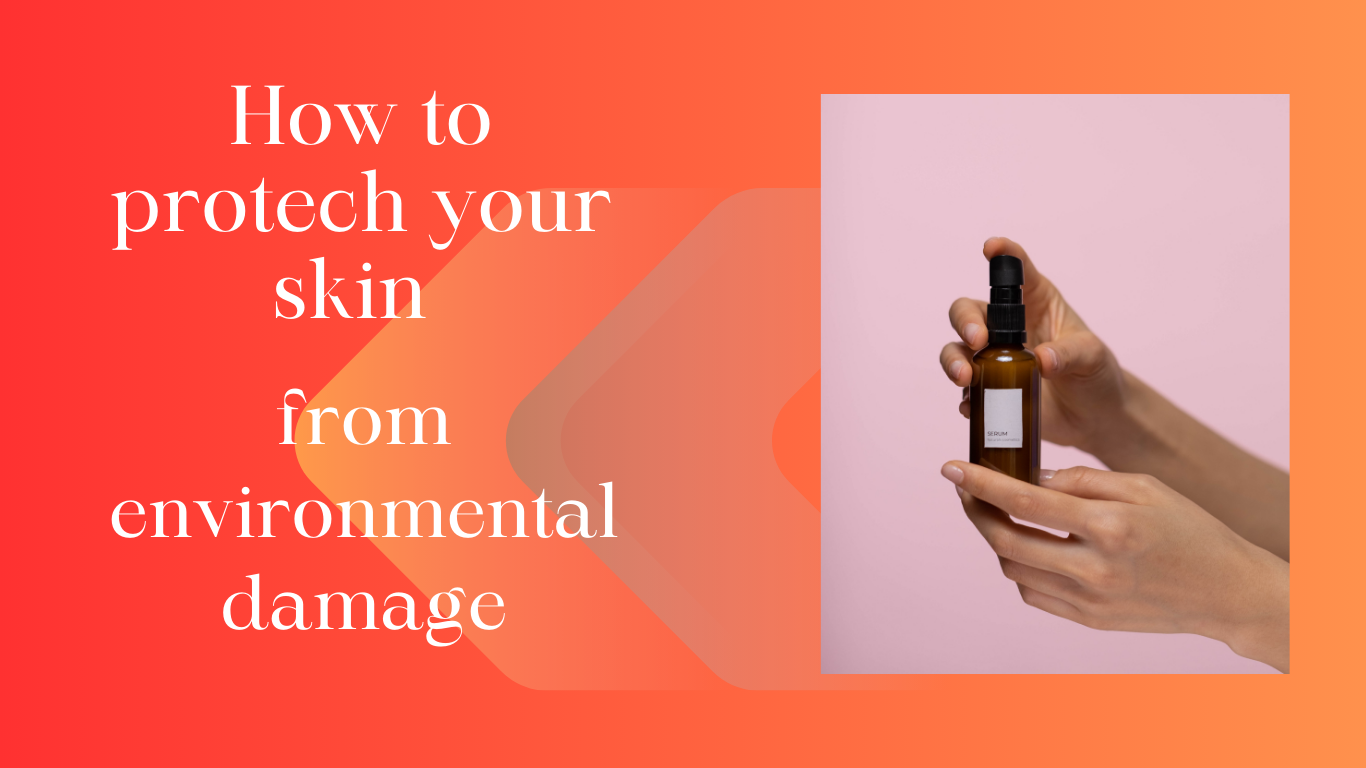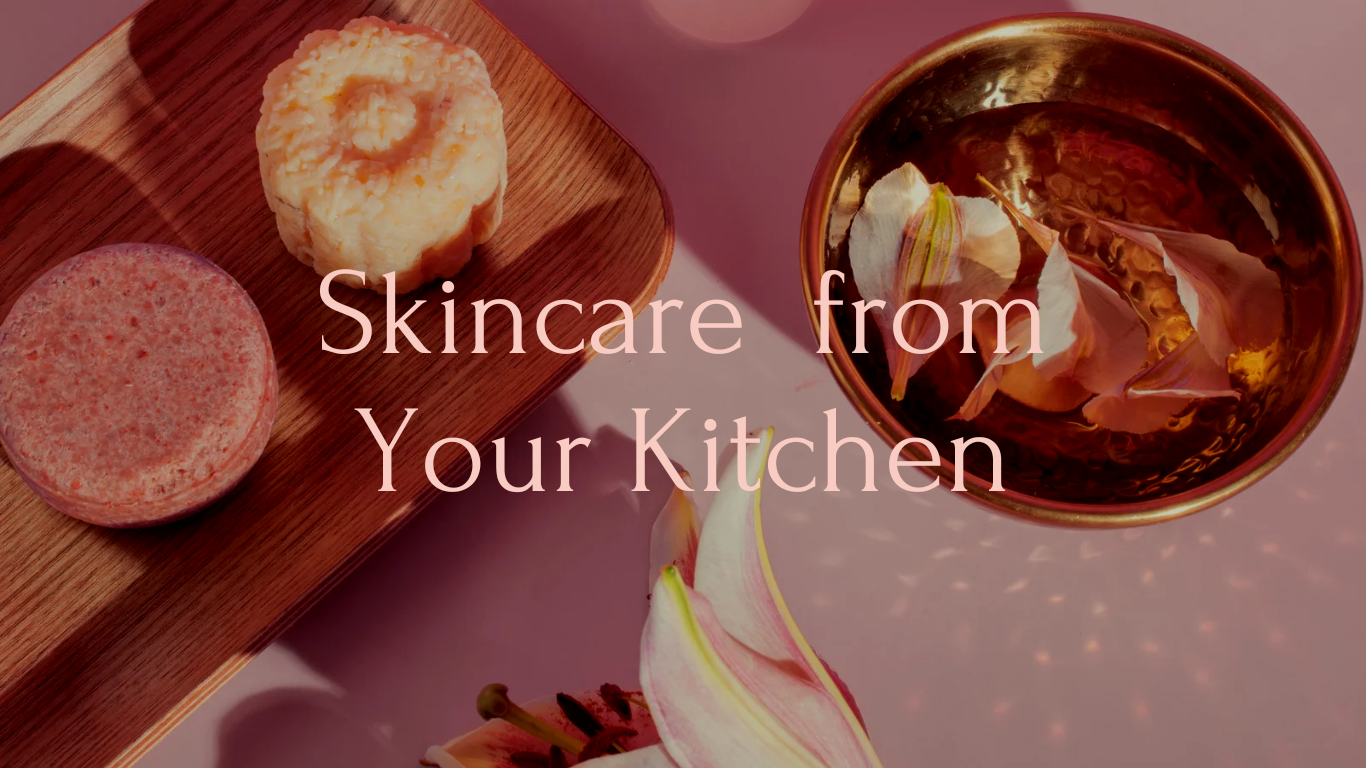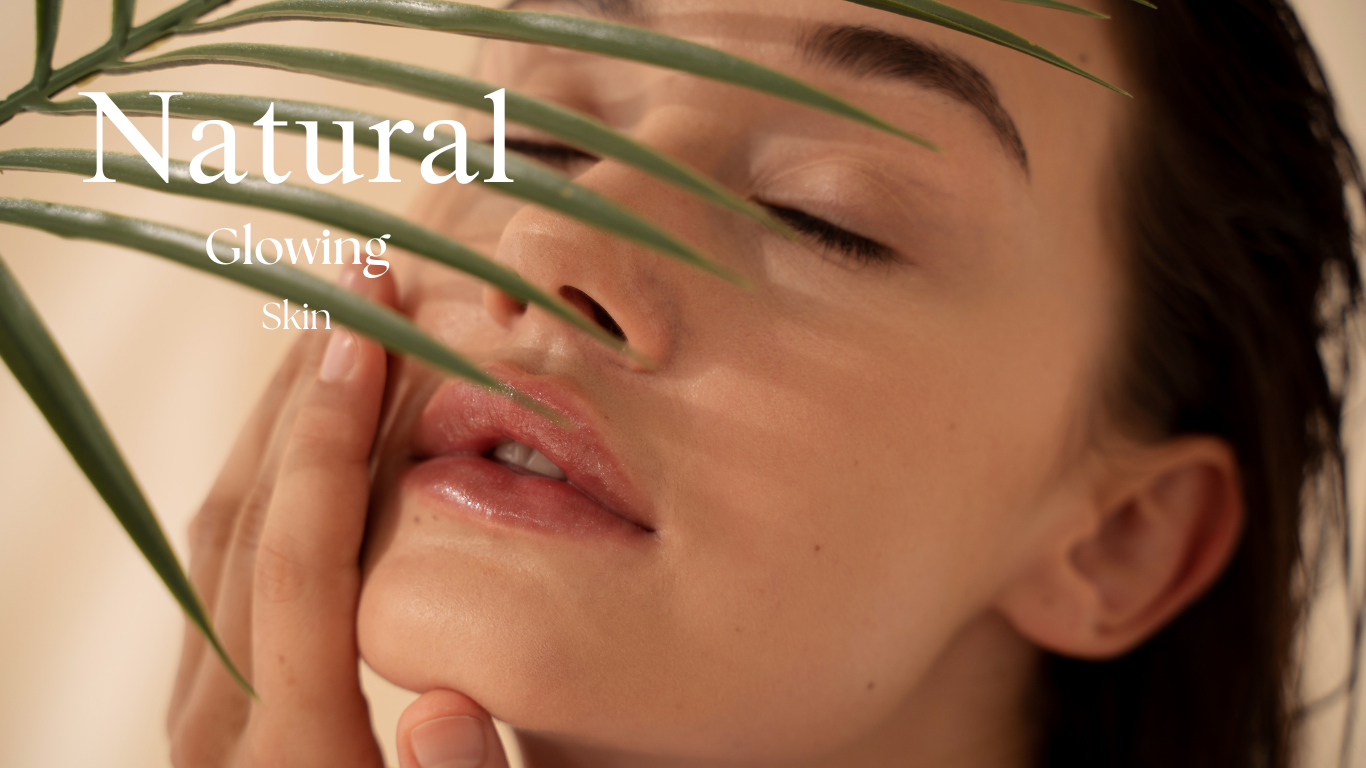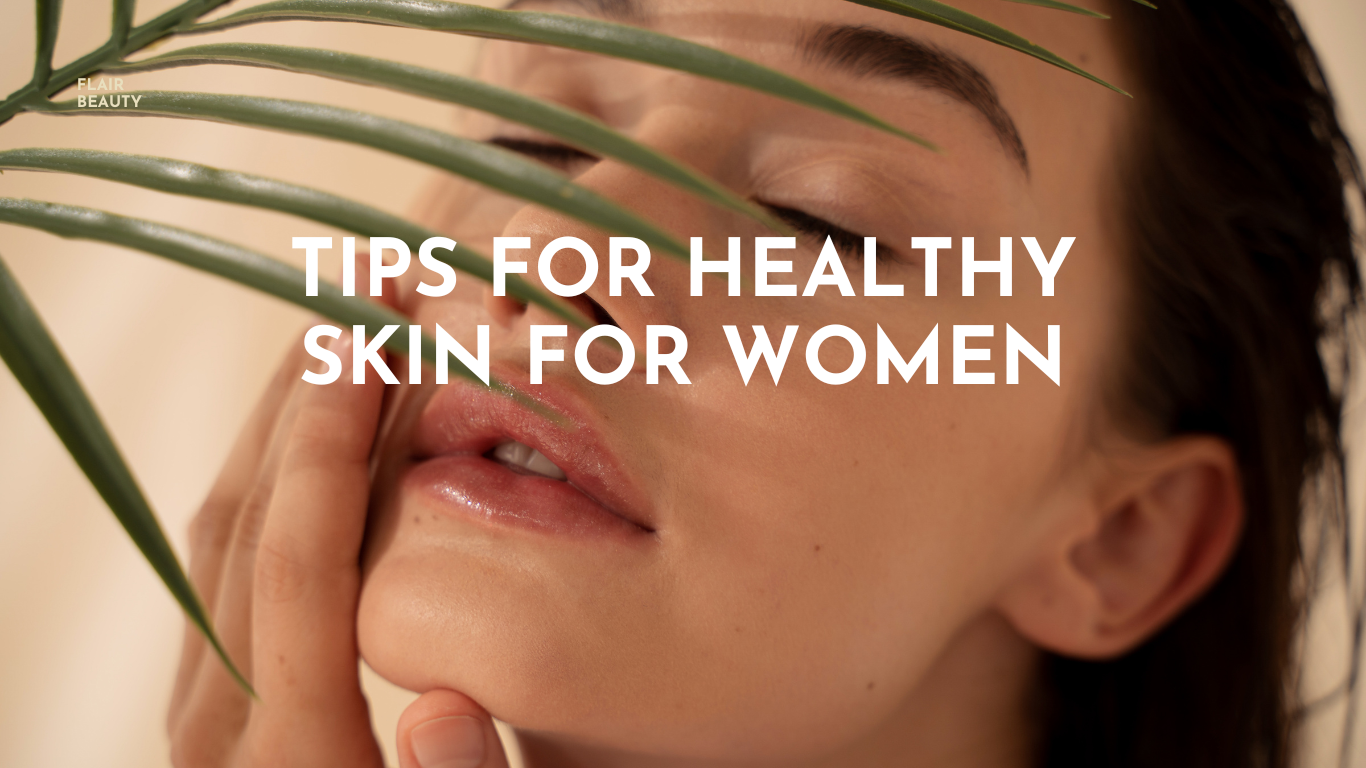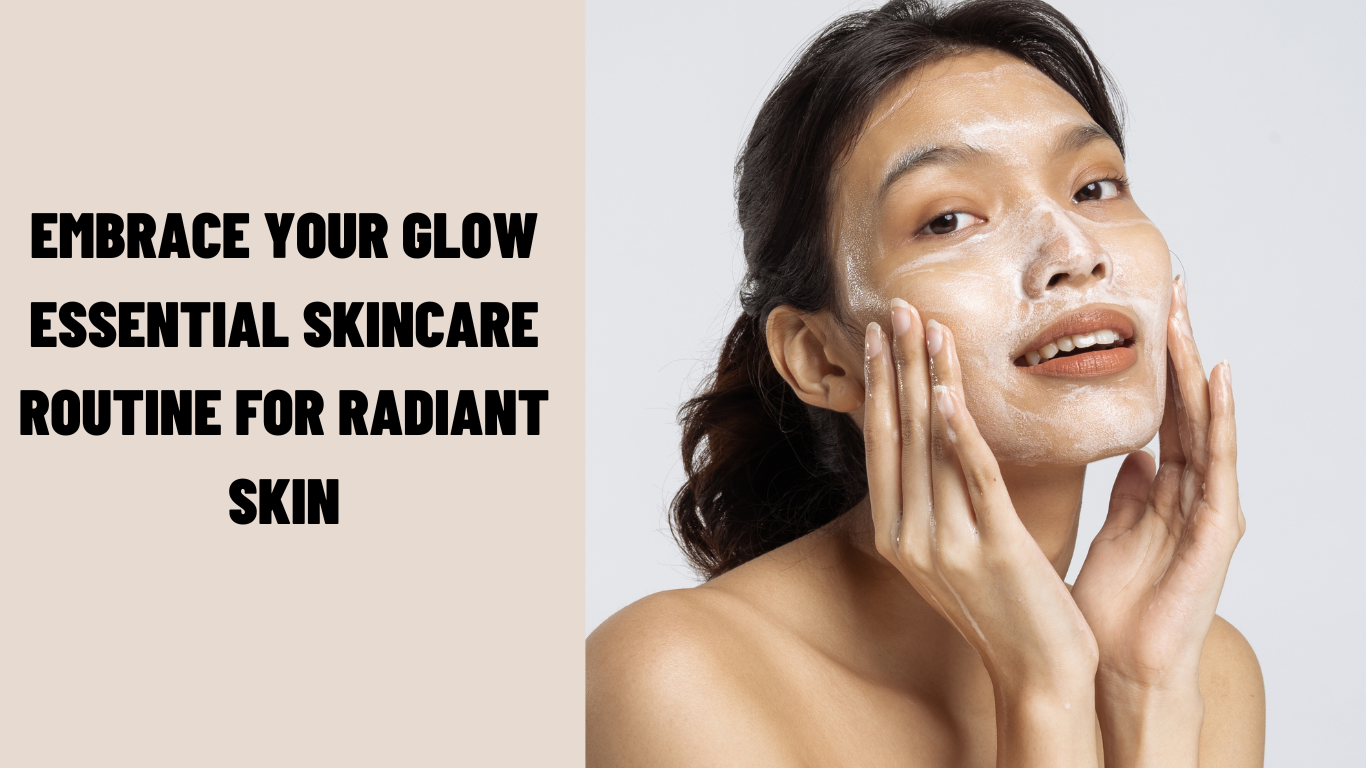Our skin is always under attack from outside elements that may harm it, from the sun’s rays to air pollution and severe climate conditions. It’s essential to guard your skin against these factors to keep it looking healthy and young. Here are some proven methods to protect your skin from harm from the environment. 1. Use Sunscreen Daily Using sunscreen every day is a crucial measure to shield your skin from harm from the environment. The sun’s UV rays are a leading factor in early aging, sunburn, and the development of skin cancer. Tips for Effective Sunscreen Use: 2. Incorporate Antioxidants into Your Skincare Routine Antioxidants are strong components that counteract free radicals, which are damaging particles produced by external elements such as pollution and UV rays. Top Antioxidants to Look For: How to Use Antioxidants: Hydrate Your Skin Keeping your skin moisturized is important to protect it from damage caused by the environment. Hydration Tips: 4. Cleanse Thoroughly Effective washing is essential for eliminating impurities, grime, and various natural pollutants from your skin. Cleansing Tips: 5. Protect Your Skin with Clothing Donning protective attire can offer an extra shield against harm from the surroundings. Protective Clothing Tips: 6. Be Mindful of Air Quality Pollution in the air can negatively impact your skin, causing early signs of aging and various skin problems. Tips for Protecting Against Pollution: Keeping your skin safe from harm from the surroundings needs both taking good care of your skin and making changes in your way of living. By adding sunscreen, antioxidants, keeping your skin hydrated, doing thorough cleaning, wearing protective clothes, and being aware of pollution, you can protect your skin and keep it looking healthy and glowing. Make these actions a top priority to keep your skin strong and attractive, even when dealing with tough environmental conditions.
Natural Skincare Remedies: Ingredients from Your Kitchen
Natural skincare products are a straightforward, budget-friendly, and efficient option for achieving healthy skin. These products do not contain complicated ingredients or come with high price tags like many other skincare items. Numerous of these solutions can be discovered in your own kitchen. Here are a few of the top natural components and their uses to improve your skincare regimen. Usage:Face Mask: Apply a thin layer of raw honey to your face and allow it to sit for 15-20 minutes before washing it off with warm water.Spot Treatment: Apply a small amount of honey to blemishes and leave it overnight to decrease redness and swelling. Usage: Exfoliating Scrub: Blend ground oatmeal with water or milk to create a paste. Gently massage this mixture onto your face in circular motions, then rinse it off to eliminate dead skin cells.Soothing Bath: Add a cup of finely ground oatmeal to your bathwater to soothe irritated skin and offer relief from itching. Usage: Moisturizing Mask: Mash half an avocado and mix it with a tablespoon of honey. Apply this mixture to your face and leave it on for 20 minutes before rinsing it off with lukewarm water.Under-Eye Treatment: Apply mashed avocado under your eyes to lessen puffiness and dark circles Usage: Brightening Mask: Apply plain yogurt directly to your face and let it remain for 15 minutes. Rinse it off with warm water to reveal smoother, brighter skin.Sunburn Relief: Mix yogurt with aloe vera gel and apply it to areas affected by sunburn to soothe and hydrate the skin. Usage:Brightening Mask: Combine one teaspoon of turmeric with a tablespoon of yogurt and a teaspoon of honey. Apply this mixture to your face and leave it on for 15 minutes before washing it off.Acne Treatment: Mix turmeric with water to form a paste and apply it to areas prone to acne. Leave it on for 10-15 minutes before rinsing it off. Usage: Moisturizer: Apply coconut oil to your skin as a moisturizer.Treatment for Dry Skin: Apply coconut oil to dry skin areas.
Top 10 Natural Ingredients for Glowing Skin
Achieving glowing, radiant skin doesn’t continually require high-priced products. Nature presents a plethora of elements that could paintings wonders in your complexion. Here are the top 10 natural components that allow you to achieve that coveted glow: 1. Aloe Vera Aloe vera is a powerhouse of antioxidants, nutrients, and minerals. It’s recognised for its soothing and hydrating residences, making it an excellent choice for all pores and skin types. Aloe vera gel can assist lessen infection, heal sunburns, and preserve the pores and skin moisturized. Simply practice clean aloe vera gel on your face and allow it take a seat for 15-20 minutes earlier than rinsing off. 2. HoneyHoney is a herbal humectant, which means that it attracts moisture into the pores and skin. It also has antibacterial residences which could assist fight pimples. Using honey as a face masks can go away your pores and skin feeling smooth, hydrated, and glowing. Apply a skinny layer of raw honey on your face, leave it on for 20 minutes, and rinse off with warm water. 3. Turmeric Turmeric carries curcumin, a compound with powerful anti-inflammatory and antioxidant properties. It can help brighten the pores and skin and reduce darkish spots. Create a turmeric face masks by blending turmeric powder with yogurt or honey and applying it on your face for 10-15 minutes earlier than rinsing off. 4. Coconut Oil Coconut oil is rich in fatty acids and has moisturizing homes which can assist hold the skin smooth and supple. It’s additionally known for its antibacterial and antifungal blessings. Use coconut oil as a herbal makeup remover or use it on dry areas of your pores and skin to preserve them hydrated. 5. Green Tea Green tea is full of antioxidants, mainly EGCG (epigallocatechin gallate), which allows protect the skin from harm and decreases infection. You can use cooled inexperienced tea baggage as a compress for puffy eyes or make a inexperienced tea toner by steeping green tea leaves and applying the cooled liquid on your face with a cotton pad. 6. Cucumber Cucumber has excessive water content material and is rich in nutrients and minerals, making it excellent for hydrating and soothing the skin. Cucumber slices can be placed at the eyes to reduce puffiness, or you could blend cucumber into a paste and observe it as a cooling face mask. 7. Rose Water Rose water is thought for its anti inflammatory residences and its capacity to stability the pores and skin’s PH. It’s additionally a terrific natural toner which could refresh and hydrate the skin. Spritz rose water onto your face after cleansing or use it to mix face mask for an additional raise of hydration. 8. Oatmeal Oatmeal isn’t handiest a mild exfoliant but additionally has anti inflammatory and moisturizing residences. It’s perfect for sensitive pores and skin. Mix ground oatmeal with water or yogurt to create a calming face masks that may calm indignant skin and depart it feeling easy and tender. 9. Lemon Lemon is wealthy in vitamin C, which can help brighten the pores and skin and fade darkish spots. However, it have to be used with caution as it could be tense for some skin types. Mix lemon juice with water or honey and use it on darkish spots for a couple of minutes earlier than rinsing off. Always do a patch test first. 10. Avocado Avocado is full of healthful fats, nutrients, and antioxidants that could deeply nourish and moisturize the pores and skin. Mash a ripe avocado and follow it as a face mask for 15-20 mins. Your pores and skin will sense tender, hydrated, and glowing in a while.
Skincare Routine for Winter: Keep Your Skin Glowing and Hydrated
Winter can be a challenging season for your skin. The cold weather, low humidity, and indoor heating can leave your skin dry, dull, and sometimes even irritated. To maintain a healthy and glowing complexion during these colder months, it’s essential to adapt your skincare routine. Here’s a comprehensive guide to help you keep your skin radiant and hydrated throughout the winter season. 1. Gentle Cleansing Start your routine with a gentle cleanser that doesn’t strip your skin of its natural oils. Opt for a cream or oil-based cleanser that provides moisture while effectively removing impurities. Avoid foaming cleansers with harsh sulfates, as they can exacerbate dryness. 2. Exfoliation Exfoliating is crucial in winter to remove dead skin cells and allow better absorption of moisturizers. However, over-exfoliating can damage your skin barrier, leading to increased dryness and sensitivity. Use a gentle exfoliant once or twice a week, preferably one with natural enzymes or mild acids like lactic acid. 3. Hydrating Toner After cleansing, apply a hydrating toner to replenish moisture and prepare your skin for the next steps. Look for toners containing ingredients like hyaluronic acid, glycerin, and aloe vera, which help attract and retain moisture in your skin. 4. Serum A hydrating serum is a must-have in your winter skincare arsenal. Choose serums with hyaluronic acid, vitamin E, and peptides to boost hydration and repair your skin barrier. These ingredients help plump the skin, reduce fine lines, and keep your complexion looking fresh and dewy. 5. Moisturizer Switch to a richer, more emollient moisturizer during the winter months. Creams and balms with ingredients like shea butter, ceramides, and squalane provide intense hydration and form a protective barrier against the harsh elements. Apply your moisturizer while your skin is still slightly damp to lock in maximum moisture. 6. Face Oils Incorporating face oils into your routine can provide an extra layer of nourishment. Oils like jojoba, argan, and rosehip are excellent choices for their hydrating and skin-repairing properties. You can mix a few drops into your moisturizer or apply them directly to your skin after moisturizing. 7. Sunscreen Even in winter, sunscreen is a non-negotiable step. UV rays can still penetrate through clouds and cause skin damage. Use a broad-spectrum SPF 30 or higher daily to protect your skin from harmful UV radiation and prevent premature aging. 8. Lip Care Don’t forget your lips! The delicate skin on your lips is prone to cracking and chapping in the winter. Use a nourishing lip balm with ingredients like beeswax, shea butter, and vitamin E. Apply it throughout the day and before bed to keep your lips soft and supple. 9. Humidifier Indoor heating can significantly reduce the humidity levels in your home, leading to dry skin. Using a humidifier helps add moisture back into the air, which can prevent your skin from becoming too dry. Place a humidifier in your bedroom to maintain optimal humidity levels while you sleep. 10. Hydration from Within Lastly, don’t forget to hydrate from the inside out. Drink plenty of water and consume foods rich in omega-3 fatty acids, like salmon, flaxseeds, and walnuts, to support your skin’s health. Conclusion Winter skincare is all about keeping your skin well-hydrated and protected from harsh environmental factors. By following this routine and using products tailored to your skin’s needs, you can maintain a healthy, glowing complexion all winter long. Remember, consistency is key, so stick to your routine and adjust as necessary to keep your skin looking its best.
Skincare Tips for Oily Skin: Achieve a Radiant, Shine-Free Complexion
Oily skin can be challenging to manage, but with the right skincare routine, you can achieve a healthy, radiant complexion. Oily skin occurs when the sebaceous glands produce excess sebum, leading to shine, enlarged pores, and a propensity for acne. Here are some essential skincare tips to keep your oily skin under control and looking its best. 1. Cleanse Gently but Thoroughly One of the most important steps in managing oily skin is to cleanse it properly. Use a gentle, foaming cleanser twice a day to remove excess oil, dirt, and makeup. Look for cleansers containing salicylic acid or benzoyl peroxide, which can help reduce oil and prevent breakouts. Avoid harsh, drying cleansers that can strip your skin of its natural oils and trigger even more oil production. 2. Exfoliate Regularly Exfoliation is key to keeping oily skin clear and smooth. Use a chemical exfoliant containing alpha-hydroxy acids (AHAs) or beta-hydroxy acids (BHAs) two to three times a week. These ingredients help to remove dead skin cells and unclog pores, reducing the risk of acne. Avoid physical exfoliants with rough particles, as they can irritate your skin and exacerbate oiliness. 3. Hydrate Without Heavy Creams Moisturizing is crucial for all skin types, including oily skin. Opt for lightweight, oil-free moisturizers that provide hydration without clogging pores. Look for ingredients like hyaluronic acid and glycerin, which attract moisture to the skin without adding extra oil. Gel-based moisturizers are often a great choice for oily skin types. 4. Use Sunscreen Daily Sun protection is a must for healthy skin. Choose a non-comedogenic, oil-free sunscreen with an SPF of at least 30 to protect your skin from harmful UV rays without causing breakouts. Look for sunscreens that are specifically formulated for oily or acne-prone skin to avoid additional shine. 5. Incorporate Clay Masks Clay masks can be a beneficial addition to your skincare routine. They help to absorb excess oil and draw out impurities from the pores. Use a clay mask once a week to keep your skin clear and reduce shine. Bentonite and kaolin clays are particularly effective for oily skin. 6. Blot Away Excess Oil Throughout the day, use blotting papers to remove excess oil without disturbing your makeup. These papers absorb oil quickly and can help keep your skin looking matte and fresh. Avoid over-washing your face during the day, as this can strip your skin and lead to increased oil production. 7. Choose Oil-Free Makeup When selecting makeup products, opt for oil-free, non-comedogenic options that won’t clog your pores. Powder foundations and mattifying primers can help control shine and keep your makeup in place longer. Always remove your makeup thoroughly before bed to prevent clogged pores and breakouts. 8. Stay Hydrated and Eat Well What you put into your body can also affect your skin. Drink plenty of water to keep your skin hydrated from the inside out. A diet rich in fruits, vegetables, lean proteins, and whole grains can promote healthy skin. Avoid excessive consumption of sugary and greasy foods, which can exacerbate oily skin and lead to breakouts. 9. Seek Professional Advice If you’re struggling with severe acne or persistent oiliness, consider consulting a dermatologist. They can provide personalized advice and recommend treatments such as prescription medications, chemical peels, or laser therapy to help manage your oily skin. By following these tips and maintaining a consistent skincare routine, you can control oiliness, minimize breakouts, and achieve a radiant, healthy complexion. Remember, patience and persistence are key when it comes to skincare, so give your routine time to show results.
Tips for Healthy Skin for Women
Maintaining healthy skin is essential for every woman who wants to look and feel her best. Healthy skin not only enhances your appearance but also reflects overall well-being. Here are some valuable tips to help you achieve and maintain healthy, glowing skin. 1. Stay Hydrated Hydration is crucial for healthy skin. Drinking at least 8 glasses of water daily helps keep your skin hydrated from within. Proper hydration improves skin elasticity, reduces the appearance of fine lines, and gives your skin a radiant glow. You can also incorporate hydrating foods like cucumbers, watermelon, and oranges into your diet for added benefits. 2. Follow a Balanced Diet Your skin’s health is directly linked to what you eat. A balanced diet rich in vitamins, minerals, and antioxidants can work wonders for your skin. Incorporate plenty of fruits, vegetables, whole grains, and lean proteins into your meals. Foods rich in omega-3 fatty acids, such as salmon, flaxseeds, and walnuts, help maintain the skin’s lipid barrier, keeping it soft and supple. 3. Cleanse Gently Cleansing is a vital step in any skincare routine. Use a gentle, sulfate-free cleanser that suits your skin type to remove dirt, makeup, and impurities without stripping away natural oils. Avoid hot water as it can dehydrate your skin. Instead, use lukewarm water to cleanse your face. 4. Exfoliate Regularly Exfoliation helps remove dead skin cells, promoting cell turnover and revealing fresher, brighter skin. Use a gentle exfoliator with natural ingredients like oatmeal, sugar, or mild fruit acids. Exfoliate 2-3 times a week, depending on your skin type, to avoid over-exfoliation, which can cause irritation. 5. Moisturize Daily Keeping your skin moisturized is key to maintaining its health and vitality. Choose a moisturizer suited to your skin type – lightweight, non-comedogenic for oily skin, and richer, hydrating formulas for dry skin. Apply your moisturizer right after cleansing to lock in moisture. 6. Protect from Sun Damage Sun protection is crucial for healthy skin. Prolonged sun exposure can cause premature aging, sunburn, and even skin cancer. Apply a broad-spectrum sunscreen with an SPF of at least 30 every day, even on cloudy days. Reapply every two hours when outdoors and wear protective clothing, hats, and sunglasses for added protection. 7. Get Adequate Sleep Quality sleep is essential for skin health. While you sleep, your body repairs and regenerates skin cells. Aim for 7-9 hours of sleep each night to wake up with refreshed, glowing skin. Practice good sleep hygiene by maintaining a regular sleep schedule and creating a relaxing bedtime routine. 8. Manage Stress Stress can take a toll on your skin, leading to breakouts, dullness, and other skin issues. Engage in stress-relieving activities like yoga, meditation, or deep breathing exercises to keep your stress levels in check. Taking time for self-care and relaxation can significantly improve your skin’s health. 9. Avoid Smoking and Limit Alcohol Smoking and excessive alcohol consumption can harm your skin. Smoking reduces blood flow, depriving your skin of oxygen and nutrients, while alcohol dehydrates your skin. Quitting smoking and limiting alcohol intake can lead to significant improvements in your skin’s appearance and overall health. 10. Regular Exercise Exercise boosts blood circulation, which helps deliver oxygen and nutrients to your skin, promoting a healthy glow. Regular physical activity also helps reduce stress and improve sleep, both of which contribute to better skin health. Aim for at least 30 minutes of moderate exercise most days of the week. Conclusion Healthy skin is achievable with a consistent skincare routine, a balanced diet, and a healthy lifestyle. By following these tips, you can enjoy radiant, youthful skin and enhance your overall well-being. Remember, your skin is a reflection of your internal health, so take care of your body, and your skin will thank you. Fashion, Makeup, style
Embrace Your Glow: Essential Skincare Routine for Radiant Skin
In the ever-evolving world of beauty, skincare remains a timeless and fundamental aspect of self-care. A well-rounded skincare routine not only enhances your appearance but also boosts your confidence and overall well-being. Whether you’re a skincare novice or a seasoned enthusiast, understanding the essentials of an effective skincare regimen can make a world of difference. In this blog, we will explore the key components of a skincare routine that caters to all skin types, ensuring you embrace your natural glow every day. Understanding Your Skin Type Before diving into products and routines, it’s crucial to understand your skin type. Skin types generally fall into five categories: normal, oily, dry, combination, and sensitive. Identifying your skin type helps in selecting the right products that cater to your specific needs. For instance, oily skin benefits from oil-free and mattifying products, while dry skin thrives on hydrating and moisturizing formulations. Cleansing: The Foundation of Skincare Cleansing is the cornerstone of any skincare routine. It helps remove dirt, makeup, and impurities, allowing your skin to breathe and regenerate. Use a gentle cleanser suited to your skin type twice daily – once in the morning and once before bed. For those with sensitive skin, opt for fragrance-free and hypoallergenic cleansers to avoid irritation. Exfoliation: Revive Your Skin Exfoliation is essential for removing dead skin cells and promoting cell turnover. This step reveals a fresh layer of skin, leaving your complexion brighter and smoother. However, moderation is key. Over-exfoliation can lead to irritation and sensitivity. Incorporate exfoliation into your routine 2-3 times a week, using products with gentle exfoliants like alpha hydroxy acids (AHAs) or beta hydroxy acids (BHAs). Hydration: Quench Your Skin’s Thirst Hydration is vital for maintaining healthy and supple skin. Regardless of your skin type, moisturizing is a non-negotiable step. For oily skin, opt for lightweight, non-comedogenic moisturizers that won’t clog pores. Dry skin benefits from richer, more emollient formulations that provide deep hydration. Additionally, consider incorporating a hydrating serum with ingredients like hyaluronic acid to boost moisture levels. Sun Protection: Shield Your Skin Sunscreen is arguably the most crucial step in any skincare routine. Daily sun exposure can lead to premature aging, sunburn, and an increased risk of skin cancer. Apply a broad-spectrum sunscreen with at least SPF 30 every morning, even on cloudy days. Reapply every two hours if you’re outdoors. Sunscreen not only protects your skin but also preserves the effectiveness of other skincare products. Targeted Treatments: Address Specific Concerns Incorporating targeted treatments can address specific skin concerns such as acne, hyperpigmentation, or fine lines. Serums and treatments with active ingredients like retinoids, vitamin C, or niacinamide can work wonders. Start with a lower concentration and gradually increase usage to allow your skin to adjust and avoid potential irritation. Healthy Lifestyle: The Ultimate Skincare Secret Remember, skincare isn’t just about external products; a healthy lifestyle plays a significant role. Stay hydrated by drinking plenty of water, maintain a balanced diet rich in vitamins and antioxidants, and get enough sleep. Stress management and regular exercise also contribute to a radiant complexion. Conclusion A consistent and well-rounded skincare routine is the key to achieving and maintaining radiant, healthy skin. By understanding your skin type, cleansing effectively, exfoliating gently, hydrating thoroughly, protecting from the sun, and addressing specific concerns, you can embrace your natural glow every day. Invest time in self-care, and your skin will thank you with a luminous and youthful appearance. Fashion, Makeup, Skincare

